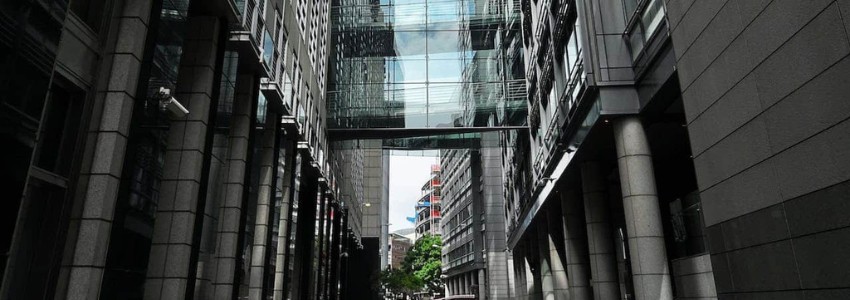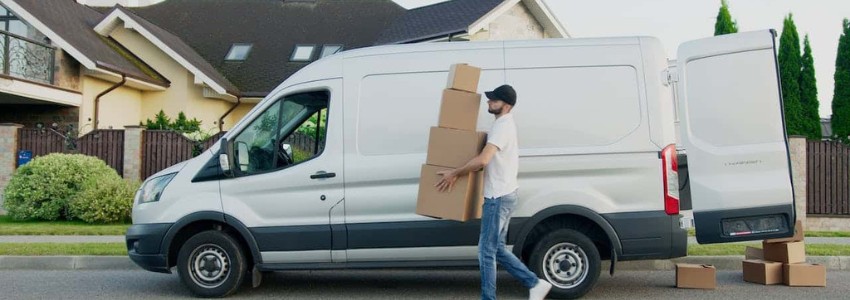As a business owner in the United Kingdom, protecting your commercial property is paramount. Whether you own an office building, a retail space, a manufacturing facility, or any other type of commercial property, you face various risks that could lead to significant financial losses. To safeguard your investment and ensure business continuity, it’s essential to have the right commercial property insurance. Understanding the different types of commercial property insurance policies available is the first step in securing the appropriate coverage for your business. In this guide, we’ll explain the key types of commercial property insurance policies in the UK, including basic form, special form, and more.
Basic Form commercial property insurance
Basic Form commercial property insurance, also known as “named perils” coverage, is a more limited form of insurance. It provides protection against specific perils or risks that are explicitly named in the policy. Common perils covered by Basic Form insurance typically include fire, lightning, explosion, windstorm, hail, smoke, vandalism, and malicious mischief.
Pros:
Cost-effective: Basic Form insurance tends to have lower premiums because it covers a limited set of perils.
Simple: The coverage is straightforward and easy to understand.
Cons:
Limited coverage: This type of policy only provides protection for the perils explicitly listed in the policy. Any damage or loss caused by unlisted perils is not covered.
Risk of gaps: Business owners may assume they are covered for all potential risks, leading to gaps in coverage.
Who needs it?
Business owners with limited budgets who want to protect their property from specific named perils.
Companies located in areas with minimal exposure to certain risks.
Broad Form commercial property insurance
Broad Form commercial property insurance offers coverage for a wider range of perils compared to Basic Form insurance. In addition to the named perils included in Basic form coverage, it also includes coverage for perils such as falling objects, weight of snow or ice, accidental discharge of water or steam, and the collapse of building foundations.
Pros:
Expanded coverage: Broad form insurance provides more comprehensive coverage compared to basic form.
Balanced cost: While it offers broader coverage, it is generally more affordable than special form insurance.
Cons:
Still limited: While it covers more perils than basic form insurance, there are still limitations on coverage for unlisted perils.
Gaps possible: There may still be gaps in coverage for risks not explicitly mentioned in the policy.
Who needs it?
Businesses looking for more extensive coverage than basic form insurance without the cost of special form insurance.
Companies that want protection against a broader range of risks but still have limited budgets.
Special form commercial property insurance
Special form commercial property insurance, also known as “all-risk” or “open-perils” coverage, is the most comprehensive type of commercial property insurance. It covers all perils except those that are explicitly excluded in the policy. Exclusions typically include events like earthquakes, floods, acts of war, and intentional acts of damage by the policyholder.
Pros:
Comprehensive coverage: Special form insurance provides protection for a wide range of risks, making it highly comprehensive.
Fewer coverage gaps: Since it covers most perils, there are fewer gaps in coverage compared to basic and broad form insurance.
Cons:
Higher premiums: The comprehensive coverage comes at a higher cost, resulting in more expensive premiums.
Policy clauses: Policyholders must pay attention to any policy clauses, endorsements, or special conditions that may limit coverage in specific circumstances.
Who needs it?
Businesses that want the most extensive and inclusive coverage for their commercial property.
Companies located in areas prone to a variety of risks, or those with high-value assets that need full protection.
Named perils commercial property insurance
Named perils commercial property insurance is a policy that explicitly lists and covers specific perils or risks, similar to basic form insurance. Unlike basic form, however, named perils insurance provides more flexibility for businesses to customise their coverage by selecting and naming the perils they want to protect against. This approach allows businesses to tailor their coverage to their unique needs.
Pros:
Customisable: Named perils insurance allows businesses to choose and name the specific perils they want to cover.
Cost control: Businesses can potentially lower their premiums by selecting a more limited set of perils.
Cons:
Limited coverage: Like basic form insurance, named perils coverage only protects against the named perils and excludes all others.
Risk assessment needed: Business owners must have a good understanding of the risks they face to select the appropriate named perils.
Who needs it?
Businesses that want customised coverage for specific risks based on their location, industry, or circumstances.
Companies that want to manage costs by focusing on the most relevant perils for their business.
Agreed value commercial property insurance
Agreed value commercial property insurance is a policy in which the insured and the insurance company agree on the value of the insured property at the time of policy issuance. This agreed-upon value is used to determine the payout in the event of a covered loss or damage. It is particularly valuable for businesses with properties that may not have a clear market value or are difficult to appraise.
Pros:
Certainty of payout: With an agreed value, businesses know exactly how much they will receive in the event of a covered loss, reducing uncertainty.
Tailored coverage: Businesses can ensure that the policy covers the full value of their unique assets.
Cons:
Higher premiums: Agreed value insurance may result in higher premiums due to the guaranteed payout amount.
Regular reassessment: The agreed value may need to be reassessed periodically to account for changes in property value.
Who needs it?
Businesses with high-value, unique, or specialised assets that are difficult to appraise.
Companies that want the assurance of a specific payout amount in case of loss or damage.
Replacement cost commercial property insurance
Replacement cost commercial property insurance is a policy that provides coverage for the cost of replacing or repairing damaged or lost property with new items of similar kind and quality. This type of policy ensures that your business can fully recover its losses without depreciation taken into account.
Pros:
Full replacement: Replacement cost insurance allows businesses to replace damaged or lost property with new equivalents, minimising financial setbacks.
No depreciation: It does not consider the age or wear and tear of the property; instead, it focuses on the cost of replacing the items.
Cons:
Higher premiums: Premiums for replacement cost insurance tend to be higher than those for actual cash value coverage.
Policy limits: The policy may have maximum limits on the replacement cost, so businesses should be aware of these limitations.
Who needs it?
Businesses that want to ensure they can fully recover their losses in the event of property damage or loss.
Companies with assets that have a high replacement cost or that require like-for-like replacements.
Actual cash value commercial property insurance
Actual cash value commercial property insurance covers the value of damaged or lost property based on its current market value, accounting for depreciation. This means that the payout is adjusted for the age, wear and tear, and condition of the property at the time of the loss.
Pros:
Cost savings: Actual cash value insurance often comes with lower premiums compared to replacement cost coverage.
Affordability: It can be a more budget-friendly option for businesses.
Cons:
Depreciation considered: The payout is based on the depreciated value of the property, which may not cover the full cost of replacement.
Potential out-of-pocket expenses: Businesses may need to cover the difference between the market value and the actual replacement cost.
Who needs it?
Businesses looking for more affordable property insurance options with lower premiums.
Companies with assets that do not require full replacement or have a lower market value.
Selecting the right type of commercial property insurance in the UK is crucial to protect your business assets and minimise financial risks. Each type of policy offers different levels of coverage and cost considerations. To make an informed decision, consider your business’s specific needs, the value of your assets, your budget, and the types of risks you face. It’s also essential to review policies carefully, consult with insurance professionals, and seek customised solutions that provide comprehensive coverage and peace of mind for your commercial property. By understanding the various types of commercial property insurance policies, you can make the best choice to safeguard your business assets and ensure business continuity.
Want to take the next step? Compare commercial property insurance on MoneySpider today.








